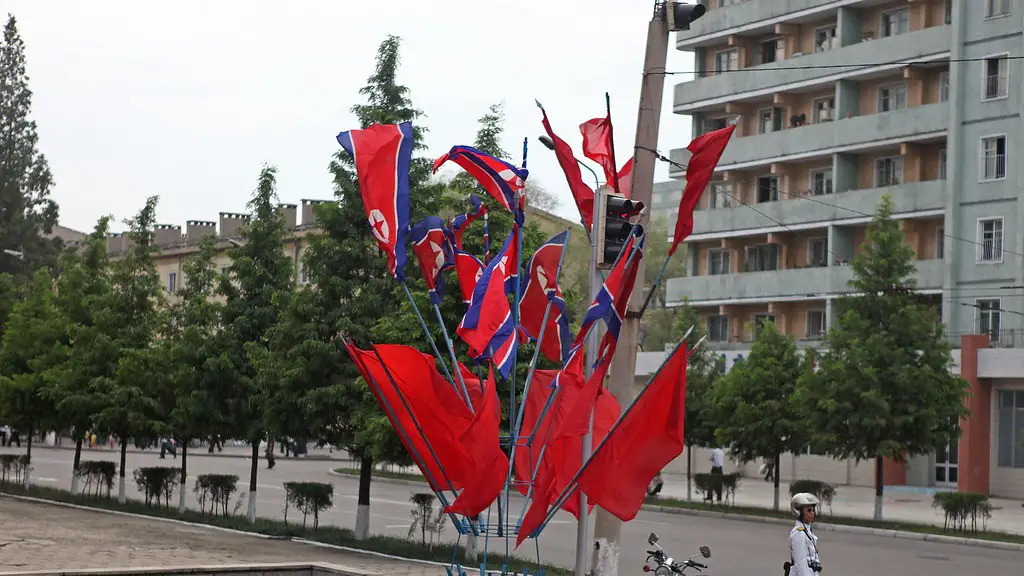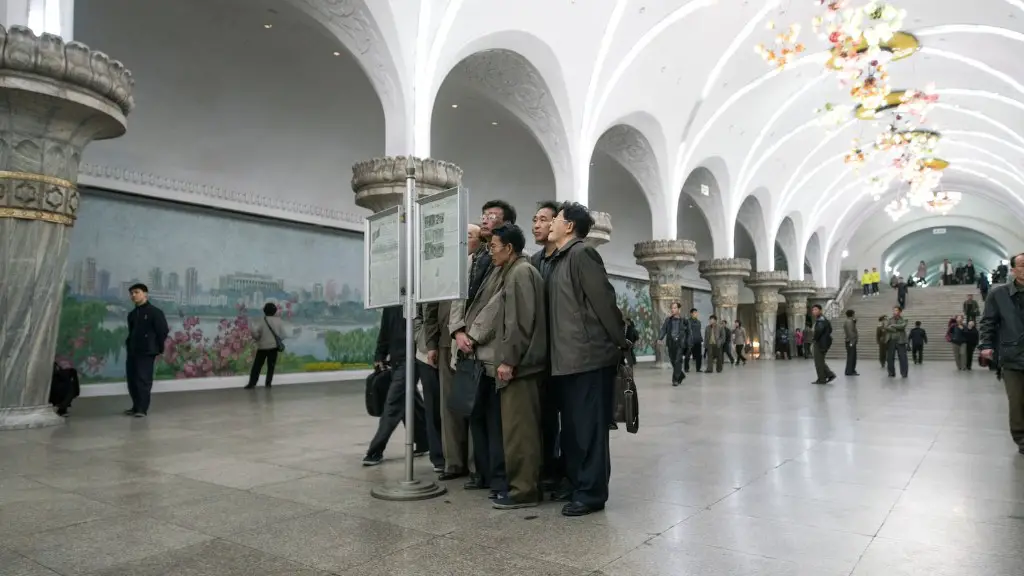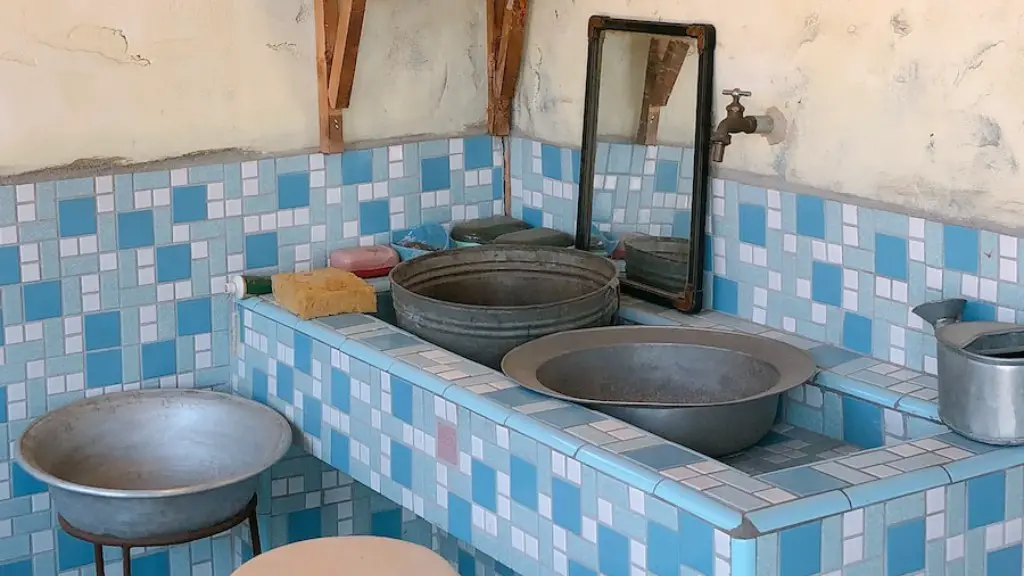What Is Foreign Aid?
Foreign aid can refer to a variety of different things, from food and medical supplies to developmental assistance, military support or even just general humanitarian aid. In general, however, foreign aid is defined as the transfer of funds and resources from a wealthier country to a poorer one, and is usually distributed through organisations like the United Nations.
Unfortunately, the use of foreign aid to North Korea has become a hot button topic in recent years. North Korea has become increasingly isolated in recent times and naturally, many international firms and organisations have become hesitant to provide aid to the country. Nevertheless, in spite of the potential dangers, it is important to consider the potential benefits of providing foreign aid to North Korea, as well as the potential risks.
What Are The Potential Benefits Of Foreign Aid To North Korea?
Firstly, providing foreign aid to North Korea could help to provide crucial short-term assistance during major humanitarian crises. North Korea has experienced a number of natural disasters over the past few years, including floods and drought, which have caused severe damage to infrastructure and crops. During these times, foreign aid could help to provide basic necessities like food, medical care and clean water, as well as increase access to education and other services.
Secondly, it could be argued that providing foreign aid to North Korea could help to build trust and confidence between the two nations. Depending on how the aid is distributed, it could be used as a means of forming better diplomatic and economic relationships between the two countries. Providing aid to North Korea also demonstrates a commitment to helping those in need, no matter what the circumstances are.
Thirdly, providing foreign aid to North Korea could also have long-term benefits. For instance, it could be used to help improve North Korea’s infrastructure, improve access to healthcare and education, and promote growth and development within the region. This could ultimately lead to increased economic and social stability in North Korea, and may even lead to positive relations between North Korea and its neighbouring countries.
What Are The Potential Risks Of Foreign Aid To North Korea?
In spite of the potential benefits of providing foreign aid to North Korea, there are also potential risks that must be taken into consideration. Firstly, it is important to consider the possible risks that providing aid could have on regional and international security. Since North Korea is known to be a highly unpredictable and unstable country, it is possible that foreign aid could be used to support its nuclear weapons programme or even its military operations in the region.
Secondly, it is also possible that foreign aid could be misused or diverted to purposes that are not in line with international objectives. For example, it is possible that the money could be diverted to line the pockets of the political elite in North Korea, rather than helping to build something that benefits the population as a whole.
Finally, some people also argue that providing large amounts of foreign aid to North Korea could be a waste of money, as the money could be better spent on other more pressing problems. This could be particularly true in cases where there are already other issues, such as a lack of trust in North Korean leaders, that could prevent the money from being used in a beneficial and productive manner.
The Debate Around Foreign Aid To North Korea
The debate over whether or not to provide foreign aid to North Korea has been going on for many years. On the one hand, there are those that argue that providing aid is essential in order to help those in need and provide assistance during times of crisis. On the other hand, there are those that argue that providing foreign aid to North Korea is too dangerous, and that the money could be better spent elsewhere.
This debate has become increasingly heated in recent years, as the international community has become more aware of the potential risks of providing foreign aid to North Korea. At the same time, however, there have also been a number of individuals, organisations and countries that have argued that providing aid is the right thing to do.
International Responses To North Korea
The international response to North Korea has been far from unanimous. While some countries and organisations have expressed their readiness to provide foreign aid to North Korea, others have been much more hesitant.
The United Nations, for example, has recently established a sanctions committee to help monitor and enforce the various international sanctions against North Korea. At the same time, however, the UN has also expressed its support for providing humanitarian aid to the country, and has urged all countries to do the same.
The United States, meanwhile, has been one of the strongest opponents of providing aid to North Korea, and has proposed further economic sanctions against North Korea as a way of reining in its nuclear and missile programs. However, the US has also expressed its support for providing humanitarian aid, and has partnered with other countries to provide food and medical assistance to North Korea.
UK Foreign Aid To North Korea
The UK has been providing some form of foreign aid to North Korea since the early 1990s, with food and medical aid being provided through the World Food Programme and other channels. This aid was initially given in response to the famine that had struck the country in the early 1990s, and since then it has continued to be provided on a regular basis in order to help those in need.
In recent years, the UK has also provided humanitarian assistance to North Korea, including funding for a range of healthcare and education projects, as well as providing training for North Korean personnel. In addition, the UK has also committed to provide aid to North Korea if and when the country is willing to open up and cooperate with the international community.
The Future Of Foreign Aid To North Korea
The future of foreign aid to North Korea is difficult to predict, as the situation in the country remains highly uncertain. At present, it appears that the international community is willing to provide humanitarian assistance to North Korea, but not in large amounts. The UK has also recently stated that it is willing to provide aid, provided that North Korea is prepared to cooperate with the international community.
It is likely that the debate around foreign aid to North Korea will continue in the future, particularly in light of North Korea’s recent re-engagement with South Korea and the United States. In the end, it is important to consider the potential benefits and risks of providing aid to North Korea, and come to a decision that is in the best interests of all parties involved.
Impact Of Foreign Aid On The North Korean People
It is important to consider the impact that foreign aid has had on the North Korean people. In some cases, foreign aid has helped to improve living conditions for many in North Korea, providing access to healthcare, education and food. In other cases, however, it is possible that the aid may have been misused or even diverted for other purposes.
In any case, it is important to consider the potential benefits and risks of providing foreign aid to North Korea, and come to a decision that is in the best interests of both countries. It is also important to keep in mind that while providing aid could be beneficial in the short-term, it is also important to consider the long-term impact of such assistance in order to ensure that it is used in a positive and meaningful way.
Political Implications Of Foreign Aid To North Korea
The political implications of providing foreign aid to North Korea should also be taken into consideration. It is possible that providing aid could be used to strengthen the ruling regime in North Korea, or even to further destabilise the region. At the same time, however, it is also possible that providing aid could help to promote peace and stability in the region if it leads to improved diplomatic relations and economic growth.
Ultimately, the decision about whether or not to provide foreign aid to North Korea should be taken with much care and consideration. It is important to consider the potential security, economic and political risks that providing aid could have, as well as the potential benefits. This debate will no doubt continue in the future, and it will be interesting to see how it develops.
Significance Of Foreign Aid To North Korea
The significance of providing foreign aid to North Korea should not be overlooked, as it could have a significant impact on the people living in the country. Not only could it help to provide short-term assistance to those in need, but it could also have long-term benefits if it is used in a positive and meaningful way. Of course, it is important to weigh up the risks and benefits of providing foreign aid to North Korea, but it is also important to understand the potential significance of such aid.
Foreign aid could be a way of opening up communication and relations between North Korea and the international community, as well as providing a source of much-needed humanitarian assistance. Furthermore, it could also be a way of improving the living conditions for North Koreans, as well as providing help in times of crisis. For these reasons, providing foreign aid to North Korea could have a significant impact on the country and its people.
Analysis Of Foreign Aid To North Korea
Overall, it seems clear that providing foreign aid to North Korea is a complex and tricky decision, one that should be taken with much care and consideration. There is no doubt that there are potential risks and benefits to providing foreign aid, and that it could have a significant impact on the region as a whole.
Ultimately, it is important to consider all the potential implications of providing foreign aid to North Korea, and to weigh up the risks and benefits carefully before coming to a decision. Providing foreign aid could be a great way to help provide assistance to those in need, but it is also important to keep in mind that it could also be misused or diverted for other purposes.


